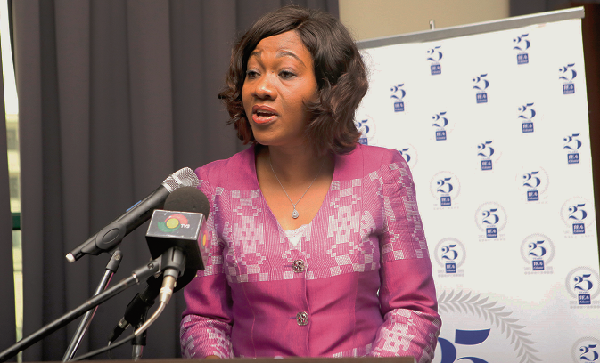The Electoral Commission (EC) has been schooled on the processes needed to make a subsidiary legislation instead of merely making a proposal without evidence to buttress it. This is based on the Commission’s proposal to end the 2024 polls at 3pm instead of 5pm.
A fellow at the Ghana Center for Democratic Development (CDD-Ghana), Professor Stephen Kwaku Asare, popularly known as Kwaku Azar, who is based in the US has asked the Commission to go through the processes needed to effect the change it is proposing, so that the decision would not disenfranchise people in the end.
He wants the EC to carefully strike the balance between its reason for proposing that the closing time of the 2024 polls be reduced to 3pm and the key feature of a democracy, which is to let people vote.
He says just as the EC’s reason for advocating for the closure of the polls early to allow collation and counting in a transparent environment, it should bear in mind that the same act can disenfranchise many eligible voters.
According to the Professor, the latter could cause more damage to Ghana’s system of governance since “the key feature of an electoral system is to let people vote.”
His comment comes on the back of some challenges encountered at the Tuesday, December 19, 2023 elections where the EC had to postpone some of the polls to Thursday, December 21.
Speaking on the issue with Alfred Ocansey on TV3’s Ghana Tonight, Prof. Kwaku Azar noted that the election management body’s reason for wanting to close the polls early is not backed by any evidential fact but rather based on an observation.
He says there are procedures that need to be followed if an agency wants a law to be passed, and that is something the Jean Mensa-led EC should consider.
“Article 23 and Article 296 require that those laws, before they (subsidiary legislation or laws) are made, follow some process. First of all, the EC cannot just announce a proposal, the EC has to actually put something in writing, an exposure draft, circulate that exposure draft to all stakeholders set a commoner window, give people about three months to bring comments a then distill those comments and hold hearings, so that you can have questions and answers. After those hearings, the EC members vote on the proposal and then they write their rationale for the position that they have taken.”
He continued that the EC’s actions “triggers an important question about the way we make laws or subsidiary legislations in this country. We’ve been doing this constitutional business for 30 years and one of the most important things in a constitutional regime is the administrative state and by that, I mean agencies, authorities and so on that make laws –what we call subsidiary legislation. You have the laws that are made by Parliament based on statutes –we all see the process and so on. But the bulk of the laws are made by these agencies in the form of subsidiary legislations and Article 23 and 296 requires that those laws before they are made follow some process.”
The Chair of the Commission, Jean Adukwei Mensa, while announcing the proposal indicated that this would allow electoral officers to collate the votes in broad daylight to ensure transparency and orderliness.
Speaking during an inter-party dialogue and stock-taking conference organized by the National Peace Council in Accra on Thursday, December 14, she intimated that the proposal stems from the experience in the 2020 elections where about 70 percent of voting centres were empty by 1:00pm.
“In 2020, 70 percent of our polling centres had a voter threshold of 500 and below. This time we intend to ensure that all our polling station centers have a threshold of 500 voters and below. In the same vein, we will increase the number of our polling stations nationwide.
“We believe that this will go a long way to reduce the long queues that characterize our elections and allow for a smooth, seamless, hustle-free voting process. In 2020, it took voters not more than five minutes to cast their votes due to the introduction of this policy.
“Based on our 2020 experience and also feedback from several observer groups we propose to close the polls at 3:00pm.
READ ALSO: Closing polls at 3pm: ‘EC is under obligation to restore its credibility’ – NDC’s Gbande













